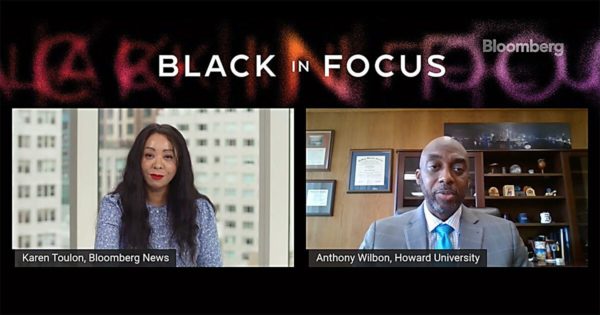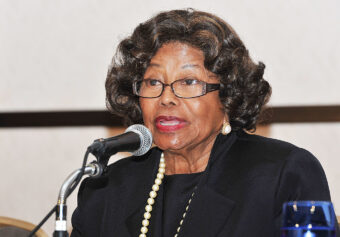By Karen Toulon
Anthony Wilbon, dean of Howard University’s business school, has been teaching students how to navigate changes in corporate America since the murder of George Floyd—and at the same time, optimize the entrepreneurial spirit that has long been a tradition in the Black community.
Ranked 23rd in the U.S. in Bloomberg Businessweek’s 2021-22 Best B-Schools MBA ranking, Howard scored especially high in networking and learning. Howard scored No. 3 in Bloomberg’s new Diversity Index, which measures 84 U.S. schools on race, ethnicity, and gender in their classes.

Howard University is perhaps the best known of the country’s 107 historically Black colleges and universities. Bloomberg’s Karen Toulon, host of Bloomberg’s Black in Focus interview series, spoke with Wilbon about diversity and its challenges. His comments have been edited for length and clarity.
How does classroom diversity affect the learning—the understanding that students will take into the real world?
The demographics of the country—of the world—are changing. We have to make sure the students have an exposure to a variety of constructs that allow them to work in spaces that they’re not necessarily comfortable in. They need to work with people from different geographic areas, different genders, different sexual identities. We make sure they are exposed to the understanding that diverse opinions can have an impact on a business’s bottom line. Bloomberg published a story a year ago showing overall Black employment in financial services at around 10 percent but representation in senior leadership in low single digits. What are you asking institutions to do differently, and what are you doing differently?
We understand that dynamic needs to change, and companies know they need to change it if they want to be successful.
We take the idea of partnership with our corporate sponsors very seriously. We’ve had a 21st Century Advantage Program for a number of years. It brings companies into our classrooms to work with students. We give them a team of 10 to 15 students, and they work with them on mentoring, helping them to understand what it’s like to be in the corporate culture and helping them to develop their skill sets around not only the hard core technical skills they need, but also the social skills they need. Then, within the companies, you talk about retention, how you manage the people that are coming from diverse environments. How do you make sure they get the opportunities to grow and to advance? Are your students pursuing any areas of specialization that you think will be beneficial down the road?
Our students have a variety of interests. Some are interested in nonprofits, some are interested in starting their own businesses. Some are looking at areas we may not have necessarily focused on in recent years: sports management, fashion.
You find a lot of folks who graduate from business school, particularly Howard’s Business School, going into a corporate organization and finding it is not for them. They will immediately jump out and try to find a way to carve their own path through their own businesses. You see a large number of Howard folks who have their own business and are very successful.
We’ve created an entrepreneurship concentration. The university has an endowed chair of entrepreneurship who oversees a lot of the activities around the campus; the college of engineering is doing stuff on innovation. A lot of things breathe entrepreneurship into our students. What is so special about entrepreneurship in the Black community?
There’s a long, long history of entrepreneurship, some of it out of necessity. If you go back historically, Blacks have always had their own businesses because they needed those assets and products and could not get them anywhere else. We’ve just tried to formalize it and put some structure behind it so we can ensure some longevity to the entrepreneurship process.
African-American businesses—small businesses in general—are the engine of this country. The majority of businesses are less than 100 people. We can be part of that success, part of that pie. We just need to figure out a way to get ourselves into it. Much of it is around funding. Do you think corporate America is living up to its promise to do more? Are you happy with the progress—not just in the hiring of your students but more important, in retention and promotion?
It’s heading in the positive direction. I don’t want to say we’re there yet. There’s still a lot to learn. I think these companies are getting there; there are good intentions. And I think the George Floyd situation and others have heightened the necessity to get more African-Americans into certain spaces, whether business, social, legal. I’m happy that people’s eyes are opening to what African-Americans and other minority populations can bring to their bottom line. They’re taking the steps to at least reach out and make something happen. I’m hoping there is a continued, sustained approach in making sure we can fill these gaps and build these pipelines. Read next: Top MBA Programs Target Diversity for Real-Life Case Studies
More stories like this are available on bloomberg.com.




